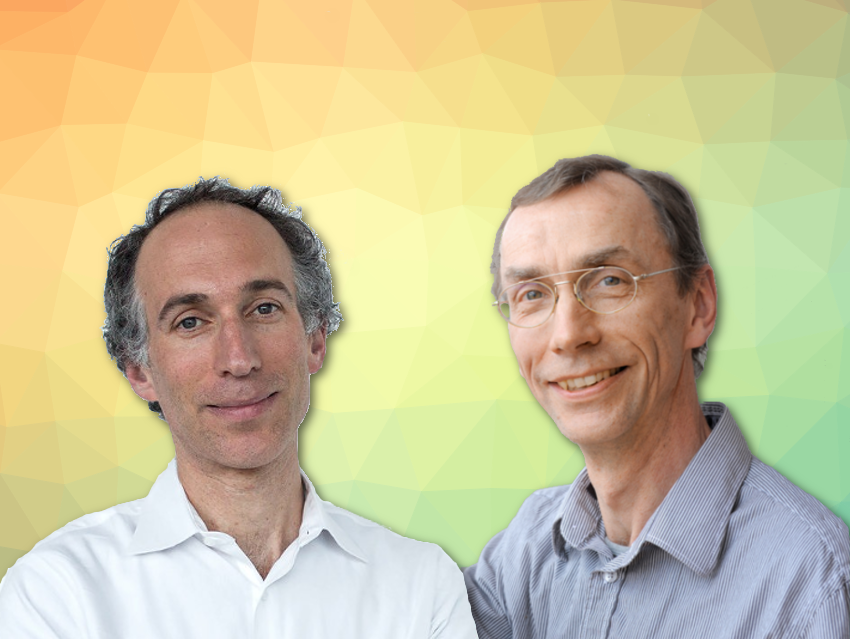Svante Pääbo, Max-Planck Institute for Evolutionary Anthropology, Leipzig, Germany, and David Reich, Harvard Medical School, Boston, MA, USA, have received the Wiley Prize in Biomedical Sciences 2019 for “their pioneering studies of ancient human DNA that revealed the origin and migration of contemporary humans and our relationship to extinct relatives”.
The prize is presented annually to recognize contributions that have opened new fields of research or have advanced concepts in a particular biomedical discipline. It includes a prize money of USD 50,000. The award was presented at a prize luncheon at Rockefeller University, New York, USA.
Svante Pääbo, born 1955 in Stockholm, Sweden, studied medicine at the University of Uppsala, Sweden, after having performed studies at the faculty of humanities. He gained his Ph.D. from the University of Uppsala in 1986. After postdoctoral research at the University of Zurich, Switzerland, and the University of California at Berkeley, CA, USA, he received his habilitation in medical genetics from the University of Uppsala in 1990. From 1990 to 1998, he was a full professor of general biology at the University of Munich, Germany. Since 1997, Svante Pääbo is Director of the Max-Planck-Institute for Evolutionary Anthropology, Leipzig, Germany, and since 1999, Honorary Professor of Genetics and Evolutionary Biology, University of Leipzig, Germany.,
Among other honors, Svante Pääbo received the Gottfried Wilhelm Leibniz Prize of the DFG (German Research Foundation) in 1992, the Lomonosov Large Gold Medal from the Russian Academy of Sciences, Moscow, in 2015, the Nakasone Award of the Human Frontier Science Program, Strasbourg, France, in 2018, and the Darwin-Wallace Medal of the The Linnean Society of London, UK, in 2019.
David Reich, born 1974, studied physics at Harvard University, Bosten, MA, USA, and received his Ph.D. in zoology from the University of Oxford, UK. In 2011, he received tenure at Harvard Medical School, and in 2013, he opened his own lab devoted to sequencing ancient remains there.
Among other honors, David Reich was highlighted as one of Nature‘s 10 for his contributions to science in 2015 and received the Dan David Prize in 2017.
Selected Articles
- The Date of Interbreeding between Neandertals and Modern Humans,
Joshua M. Akey, Sriram Sankararaman, Nick Patterson, Heng Li, Svante Pääbo, David Reich,
PLoS Genetics 2012.
https://doi.org/10.1371/journal.pgen.1002947 - Genetic history of an archaic hominin group from Denisova Cave in Siberia,
David Reich, Richard E. Green, Martin Kircher, Johannes Krause, Nick Patterson, Eric Y. Durand, Bence Viola, Adrian W. Briggs, Udo Stenzel, Philip L. F. Johnson, Tomislav Maricic, Jeffrey M. Good, Tomas Marques-Bonet, Can Alkan, Qiaomei Fu, Swapan Mallick, Heng Li, Matthias Meyer, Evan E. Eichler, Mark Stoneking, Michael Richards, Sahra Talamo, Michael V. Shunkov, Anatoli P. Derevianko, Jean-Jacques Hublin, Janet Kelso, Montgomery Slatkin, Svante Pääbo,
Nature 2010, 468, 1053–1060.
https://doi.org/10.1038/nature09710 - Molecular cloning of Ancient Egyptian mummy DNA,
Svante Pääbo,
Nature 1985, 314, 644–645.
https://doi.org/10.1038/314644a0 - Who We Are and How We Got Here,
David Reich,
Oxford University Press, 2018.
Wiley’s Press Release: The 18th Annual Wiley Prize in Biomedical Sciences Awarded for Pioneering Studies in Paleogenomics
Wiley Prize in Biomedical Sciences and other awards Wiley is involved in




